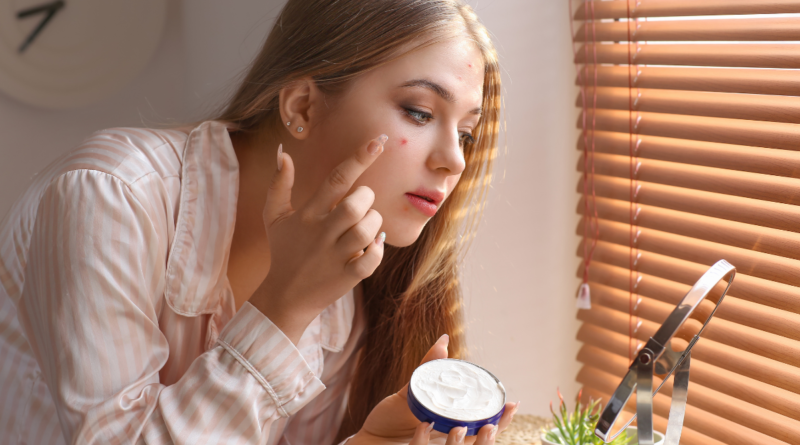What is the Best Treatment for Acne?
Imagine that you are supposed to go to an event tomorrow and just a day before, you develop an acne on your face. Doesn’t it sound like your worst nightmare? In such situations, your whole world seems to turn upside down. All the other preparations you have made so far don’t matter anymore. All you can think about is removing that one acne off your face or making it invisible to the world. You resort to browsing the internet to get some help or in some cases, you may think about visiting a Dermatologist. Your worries are legit. Of course, you can use makeup to hide it temporarily and wait till the acne disappears. But the acne may leave a mark on your face, which is annoying too.
Acne, as you know, is a skin condition occasioning due to the clogging of skin pores due to oil, dust, or dead skin cells, giving rise to pimples or pigmentation. Alike other skin problems, acne too takes time to ameliorate but with the right routine, you could have a clear and radiant skin in no time. Here are a few tips that you can follow to deal with stubborn and uninvited acne before it gets out of your hands.
1. Wash your face frequently
If you want to avoid getting acne on your face, this is a requisite. Washing your face frequently after coming from outdoors or after a sweaty task, removes the dust and oil off your face and clears your skin pores. For better results, you may even consider using a mild cleanser and lukewarm water. But make sure that you do not over-wash your face, else it would dry your skin. You may even apply an oil-free moisturizer based on your skin type after washing to avoid dryness.
2. Keep yourself hydrated
Drink plenty of water. Keeping yourself hydrated suffices the oxygen requirements of your skin pores and prevents the secretion of oil from the sweat-secreting glands. It is scientifically proven that drinking 6-8 glasses of water helps reduce acne and other skin-related issues.
3. Apply sunscreens while going outdoors
Excessive exposure to the sun can cause sunburns and overproduction of oils that make acne worse. Sunscreens act as a shield and protect your face. However, make sure that your sunscreen is dermatologically tested and prescribed before you apply them.
4. Use credible skincare products
The matter of concern here is which skin care product is good for your skin. Refrain from using oily products. Do not forget to read the label and instructions before using a skincare product. Everyone’s skin type is different and finding the right skin care product that best suits your skin is a necessity. In case you find it difficult to choose the right product, you may also take the help of a dermatologist.
5. Change in food habits
You might completely be unaware of the fact that certain food that you eat is likely to increase your risk of developing acne. Yes, you read that right. Eating excessive meat, eggs, skimmed milk and oily and spicy food might entice your taste buds but would you be willing to stand the agony of acne on your face at its cost?
6. Refrain from pooping your acne
Popping or scratching acne might be tempting as no one likes to see them on their face, but it might leave permanent scars and blemishes. Have some patience and appreciate the recovery process to avoid those marks.
7. Maintain proper hygiene
Avoid touching your face without properly sanitizing your hands. Note that your facial skin is quite sensitive. Your unwashed hands might be sheltered with germs and bacteria which on touching your face, might develop acne. Also, it is mandatory to apply only clean facial products and soaps on your face.
8. Avoid taking stress
Stress causes inflammation which can lead to the growth of acne. If your daily schedule is stressful, you must consider doing meditation, yoga, or exercises, calming your mind before and after going to bed, engaging yourself in hobbies and occasionally spending some quality time in the lap of nature to relieve your stress.
9. Vitamin A supplements
Vitamin A helps in expediting the production of new skin cells which helps to reduce pore-clogging. Dermatologists usually recommend topical retinoids like tretinoin (Retin-A, Renova) and tazarotene (Tazorac) which are rich in vitamin A, to prevent and manage the formation of acne. Some topical retinoids, such as adapalene (Differin), are also available without a prescription. Nevertheless, you must always take suggestions from a good dermatologist before having any supplement.
10. Consulting a dermatologist
If none of the above tips work for you and your acne is still severe and persistent, do not shy to consult a dermatologist and follow the do’s and don’ts that your dermatologist suggests.
Give your skin some love. At the same time, remember that love without care is pointless. Pay attention to the small things and the acne would not dare to intimidate you. It is prudent to be prepared than be sorry, right?

